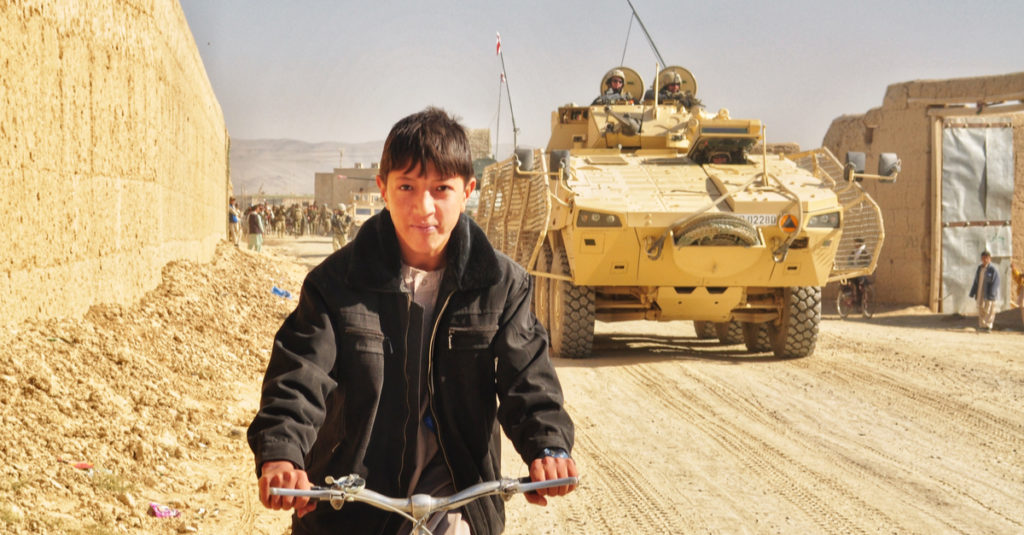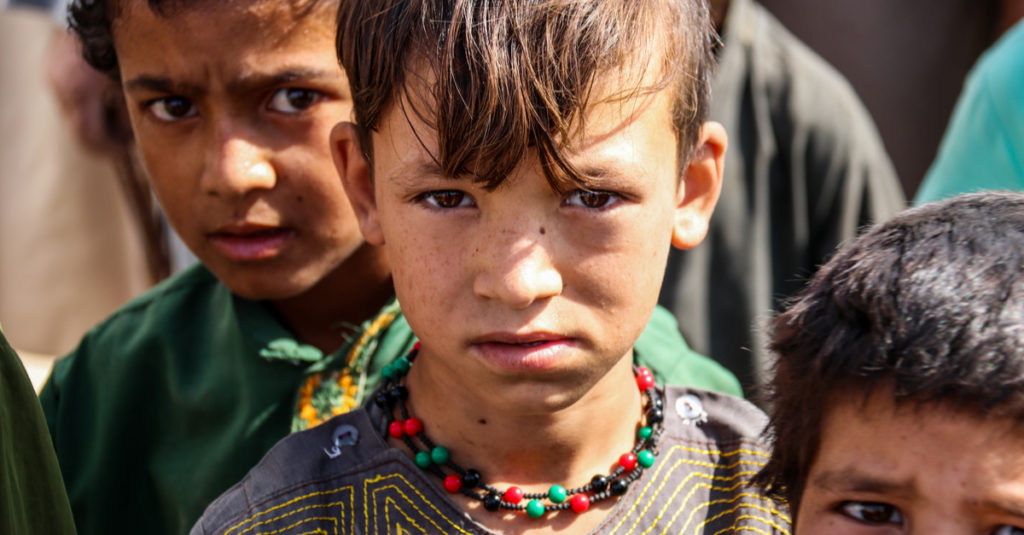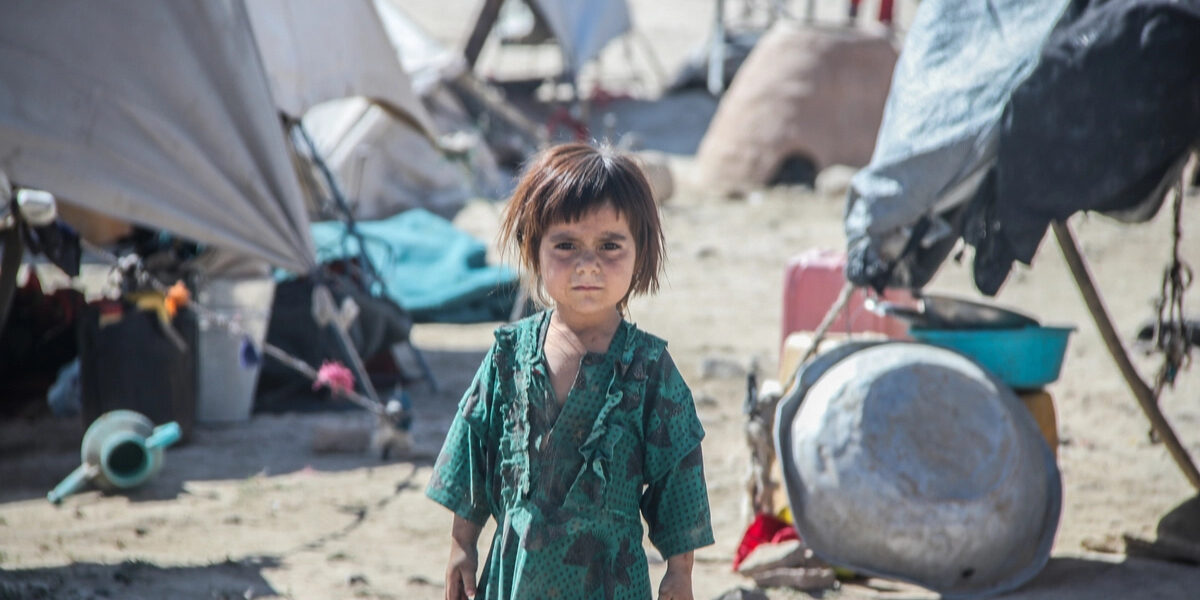The Director of the Ayaan Institute, Jahangir Mohammed, says that the Ummah cannot leave the people of Afghanistan to starve and at the mercy of Western governments and humanitarian agencies.
The United States and its Western allies spent 20 years in Afghanistan with the goal of removing Al Qaeda, supposedly advancing women’s rights, and establishing a democracy. But whilst Al Qaeda has largely been eliminated from Afghanistan and Pakistan, a functioning government was never established outside of a few major cities. The Afghan government was entirely funded, armed and propped up by Western powers. It could not survive without its patrons.
The day the U.S. signed a peace with the Taliban without the Afghan government, it marked the end for the puppet regime. Having left billions of dollars of weapons behind, the West expected the Afghan puppet government to fight for a while, which might have led to a long civil war. It was anticipated there would be revenge and retaliation by the Taliban and between different groups. However, this was a miscalculation. After 40 years of war, Afghans did not want more war and bloodshed; they wanted peace, security, and prosperity.
The Taliban were able to take over with little local opposition. The Afghan army and government refused to fight and fled. The Taliban, instead of visiting revenge on enemies, granted an amnesty to all and started making political deals with different factions and countries. Taliban 2.0 has shown a political maturity it seldom showed in its first period of power.
Western powers were taken by surprise and quickly departed in scenes reminiscent of the U.S. debacle in Vietnam. They left not just with their own people but the entire Afghan government and its employees. Some 150,000 Western Afghan workers were removed to Western countries in a matter of weeks. This deprived the country of an entire workforce of necessary skills, as well as the aid infrastructure that had been a lifeline for the Afghan people. Perhaps in this too there is a blessing in disguise in the long run for the new government, which desires a new Islamic direction.
Economic warfare and humanitarian crisis.
However, in the short term the new Afghan government faces a crisis. They are left without the funds of the country ($10billion) which is frozen in U.S. bank accounts, and which is needed to run a government and feed their people. The people of Afghanistan are at imminent risk of starvation. A heart-breaking story was shown in a BBC report last week of an Afghan family selling their daughter for $500 dollars to feed their sons. Other reports indicate that many Afghans are selling their belongings to survive. Afghanistan is a tragedy in the making.
No doubt the U.S. and the West believe that as the country starves, people will turn against the Taliban government, and they will be able to blame them for the situation and it will fuel civil war. We have seen before in Iraq how 500,000 Iraqi children were allowed to die under Western medical sanctions in pursuit of a regime change strategy. When Madeleine Albright, the U.S. Secretary of State at the time, was asked if this was a price worth paying by a journalist, her response was chillingly callous.
Lesley Stahl on U.S. sanctions against Iraq: “We have heard that a half million children have died. I mean, that’s more children than died in Hiroshima. And, you know, is the price worth it?”
Secretary of State Madeleine Albright: “I think this is a very hard choice, but the price – we think the price is worth it.”
The same strategy of starvation through economic warfare (some call it economic terrorism) has been applied by the USA to Nicaragua, Venezuela, Iran and even to some extent Lebanon and Pakistan.
In Afghanistan, the U.S. occupation had not led to economic or educational improvement for its people. It became a country living on a lifeline of Western aid. Much of that was spent on the infrastructure that has now been removed from the country, and much more was lost through corruption in the Afghan government and linked warlords. No doubt the U.S. and Western agencies want some payback for the trillions they have spent on war and occupation.

Western aid comes with strings attached. It often leads to much greater repayments of interest than the initial sum. The aid plus increased trade ends up back with Western companies, aid agencies or countries. Western aid creates dependence and is a vehicle for political compliance.
The CIA’s own statistics for Afghanistan illustrate this. In 2020, the country had a dependency ratio of 88.8%, so almost all its population was already in a state of dependency on others for survival. The average life expectancy for Afghans is currently 54 years of age. The average number of years in education by 2018 (up to what would be college-age in the West) was 8 years for girls and 13 years for boys.
Whilst Western media and politicians would have us believe that the U.S. occupation led to great progress in human rights, the description by the CIA of life in relation to the trafficking of people shows a different reality. The scale of law-and-order issues that the new Afghan government needs to deal with would be a challenge even for governments with much greater resources.
“current situation: human traffickers exploit domestic and foreign victims and returning Afghan migrants and exploit Afghan victims abroad; internal trafficking is more prevalent than transnational trafficking; traffickers exploit men, women, and a large number of children domestically; victims are subjected to forced labor in agriculture, brick kilns, carpet weaving, domestic servitude, commercial sex, begging, poppy cultivation and harvesting, salt mining, transnational drug smuggling, and truck driving; Afghan security forces and non-state armed groups, including the pro-government militias and the Taliban, continue to unlawfully recruit and use child soldiers; sexual exploitation of boys remains pervasive nationwide, and traffickers subject some boys to sexual exploitation abroad.”
“tier rating: Tier 3 — Afghanistan does not fully comply with the minimum standards for the elimination of trafficking in persons and is not making significant efforts to do so; the government decreased law enforcement efforts against civilian and official perpetrators of trafficking, and officials complicit in recruitment and use of child soldiers and the sexual exploitation of boys continued to operate with impunity; authorities continued to arrest, detain, and penalize many trafficking victims, including punishing sex trafficking victims for “moral crimes”; the judiciary remained underfunded, understaffed, and undertrained.”
Source CIA 2020
Under such conditions, it is not surprising that few Afghan refugees, especially women and children, would want to return to the country, and others want to leave.
Towards Ummah-based solutions
The Muslim Ummah cannot leave the people of Afghanistan to starve and at the mercy of Western governments and humanitarian agencies. The UNHCR, the UN refugee agency, although funded by different countries receives a large amount of its funding from the U.S. It also collects zakat from the Muslim world. The Taliban continuing to appeal to Western governments and aid agencies for help is tantamount to asking former occupiers for help. It is an embarrassment for an Ummah with huge resources at its disposal.
Whilst a few Muslim countries are providing some humanitarian aid, they are also waiting for the U.S. to give them a green light before they formally recognise the new Afghan government. They fear Western international reaction and sanction if they recognise the Taliban government and provide aid through them. The new government consists of individuals who are listed under financial sanctions as terrorists, and others are linked to the “proscribed terrorist” Haqqani Group.
Muslim countries who recognise the new government are at risk of being placed on the red or grey list of FATF (Financial Action Task Force) by the West, with financial implications and sanctions. This is also a major issue for international Muslim charities who are reluctant to work in the region for fear of their bank accounts being closed and being investigated for links/funding terrorism. This is aside from the security risks of working in the country. Neighbouring countries also want commitments from the Taliban on terrorism and security.

So the new Afghanistan government should appeal to the Muslim Ummah for assistance. The Muslims of Pakistan and the region will certainly provide humanitarian assistance. Muslim countries should not wait for the West to recognise the new government. Neighbouring countries such as Iran and Pakistan, and the Central Asian republics, as well as Qatar should recognise the new government, at least for an interim period subject to signing treaties that address their main concerns.
This would be a humanitarian intervention. They must also request the West to reconsider their international terrorism listing of members of the Afghan Government. In the past, the West did this with Nelson Mandela/ANC and the IRA.
Muslim countries need to collectively recognise and work with the new government if we want to avoid a humanitarian disaster in the country. If they leave matters to the UN and Western countries/ agencies, we will have a repeat of the decade-long chaos and suffering seen in Libya for a decade.
Pakistan and Qatar should open international donation funds for the Ummah to pay their Zakat and religious dues. Muslim charities can then also pay into those same funds. After all, if the UNHCR can collect zakat from the Ummah, why cannot some Muslim countries do so in an emergency? Afghanistan’s Muslim neighbours can also assist the government with the security situation and development projects. Countries like Iran have plenty of experience of how to survive despite Western sanctions and pressure.
What Afghanistan needs is for Muslim countries to come together to develop a Marshall-type plan for aid and re-development. When Muslims themselves provide aid and assistance through religious dues and practical projects, it will purify the wealth of the Ummah and the spiritual benefit will have the ultimate effect of uniting hearts, diminishing sectarian hatred, and forging greater solidarity, Insha’ Allah.
Muslim countries and communities should not forever look to the West to resolve problems in their regions. They need to lead, not follow the West. Independence starts first in thought and mind before it can be turned into action.



Leave a Reply